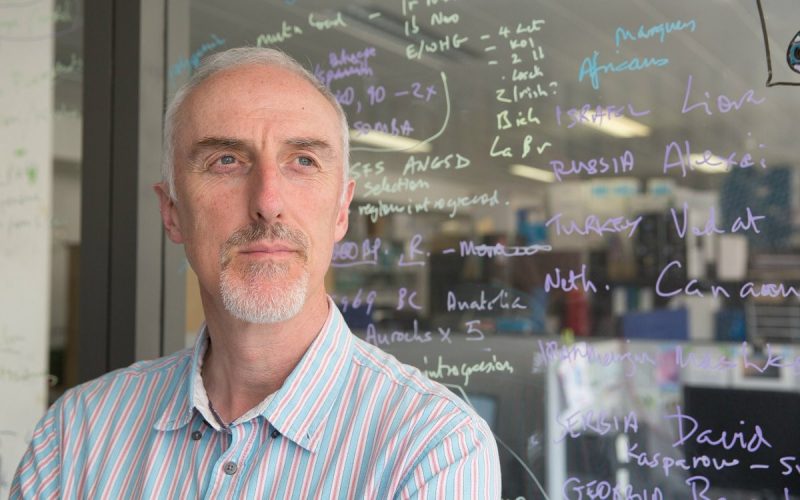Trinity professor Dan Bradley has won a European Research Council (ERC) grant worth €2.5 million for his work in the field of ancient epigenetics.
Bradley, a professor of population genetics, will receive the grant to support AncestralWeave, an investigation into the ancient genomes of cattle, sheep and goats to better understand when and where periods of ancient human innovation shaped breeding patterns.
He is one of only four Irish recipients of ERC grants on this occasion.
“Ancient farmers and their animals went through different cycles of gene-economy evolution that profoundly changed human society. This project hopes to untangle these threads of innovation, tracting the weave of genetic ancestry in cattle, sheep and goats using ancient genomics”, Bradley said in a press statement.
Linda Doyle, Trinity’s dean of research, said the award “not only recognises the ongoing importance of this inter-disciplinary research, which uses the latest genetics techniques to feed into archaeological and historical study, but also builds on Trinity’s strong track record of ERC success, which has become a point of reference for excellent frontier research across all disciplines”.
“We are extremely proud of Professor Bradley’s achievement and warmly congratulate him on what represents further recognition of the outstanding, creative, impactful work he is leading”, Doyle added.
The grant comes through the EU research funding programme Horizon2020. Under this scheme, Trinity has secured approximately 50 per cent of ERC grants in Ireland, well ahead of other Irish universities.
The award also comes after a call by the Irish University Association (IUA) last year to rethink how research is funded in Ireland after the country won only one out of 408 ERC research grants last year.
Ireland, Estonia, Croatia, Hungary, and the Czech Republic were the only countries to receive only one grant.







